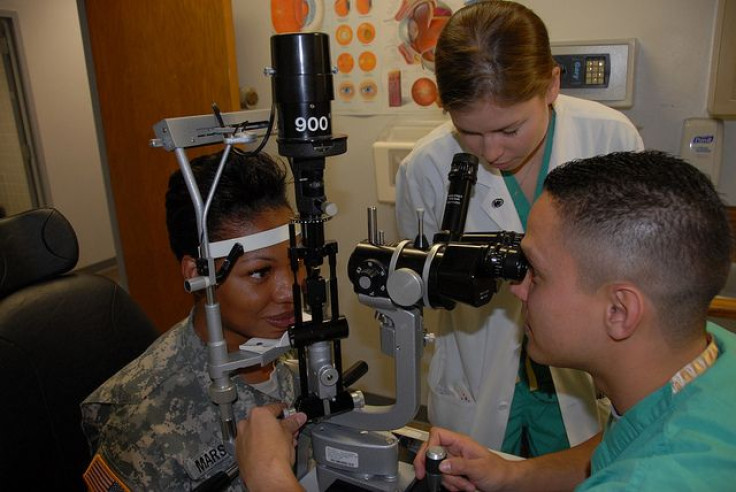A Simple Eye Test May Be Able to Detect Alzheimer's Disease

New research suggests an eye test may be able to detect signs of Alzheimer's disease.
Researchers from Boston's University School of Medicine have uncovered a correlation between cataracts and Alzheimer's disease. Evidence suggests both cataracts and Alzheimer's may share common elements.
Prior data displayed a toxic protein, which builds up in the brains, leading to confusion and memory loss, also gathers in the eyes.
The study, which was published in the journal PLoS ONE, monitored brain scans for a decade after initial eye examinations. Researchers observed almost 190,000 DNA sequence variations. The protein deltacatenin was an essential factor. Additional research showed there were increased deposits of it in the lens tissue in patients who suffer from Alzheimer's disease. This data may be able to pave the way for an opticians' eye test to detect the disease early on.
Researchers concluded there was a link between the cortical cataracts, which is the most common form of cataracts, and Alzheimer-related conditions of brain degeneration. The results suggest both diseases may have similar roots.
According to Professor Lindsay Farrer, from the Boston team, the study may give hope to moving toward early diagnosis and new treatment targets for this disease. A cataract is the clouding of an individual's normally clear lens. Cataracts develop slowly and may not interrupt your eyesight early on, however, in time it can interfere with an individual's eyesight.
According to the Centers for Disease Control nearly 20.5 million American 40-years-old or older suffer from cataract in either one eye or both. Six million individuals have had their lens removed. It is estimated by 2020 more than 30.1 million people will be diagnosed with cataracts.
Alzheimer's disease is the most common form of dementia and affects nearly 18 million people worldwide. By 2025, health experts estimate 34 million individuals will be diagnosed with Alzheimer's, many from developing countries. In America, between 2.6 to 5.2 million people are currently suffering from the disease.



























